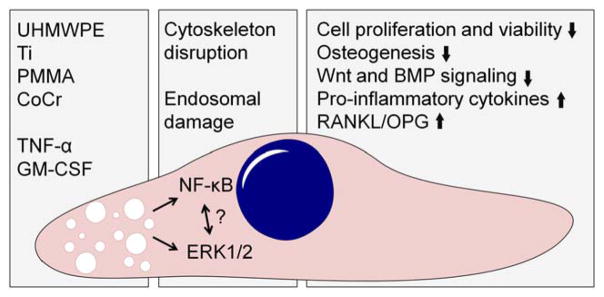FIGURE 2.
The impact of wear debris on MSCs. Biomaterial wear particles released from the implant are phagocytosed by MSCs. Particle phagocytosis induces disruption of the actin cytoskeleton and likely damage to endosomal membranes. This particle induced cell stress leads to activation of inflammatory signaling pathways, including NF-kB and ERK1/2. Activation of these pathways compromises both the viability and osteogenic differentiation ability of MSCs. Furthermore, production of selected pro-inflammatory cytokines as well as the ratio of RANKL to OPG is increased, both changes that can contribute to local osteoclast formation. In addition to direct effect of particles, also pro-inflammatory cytokines such as TNF-α and GM-CSF produced either by MSCs themselves or local macrophages likely contribute to the overall effect of wear debris. The role of Toll-like receptors and other pattern recognition receptors in the particle induced activation of inflammatory intracellular signaling pathways remain to be determined as does the detailed cross-talk between these pathways.

